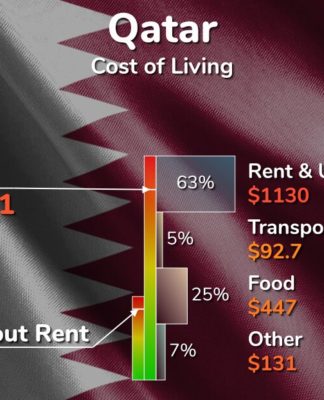Israeli PM Benjamin Netanyahu, right, and President Reuven Rivlin attend the swearing-in of Esther Hayut, incoming president of the Supreme Court, in Jerusalem on October 26, 2017. Photo: Thomas Coex / AFP
Netanyahu seeks to neuter Supreme Court oversight
Israeli PM is pushing hard to avoid jail, with his party including judicial reform in coalition talks
Israel’s embattled premier Benjamin Netanyahu, fresh off an electoral victory and seeking immunity from prosecution, is now looking to neuter the country’s judicial oversight – a path that threatens severe repercussions for the integrity of Israeli democracy.
Prime Minister Netanyahu currently faces three corruption charges, including one for bribery.
According to various sources in the Israeli media, the effort to keep Netanyahu out of prison will progress on two tracks. First, the Knesset will restore the immunity that its members had enjoyed up to 2005. Currently, if indicted, the immunity of the prime minister and lawmakers is automatically rescinded. If the law is restored to its previous format, it would afford the premier with an extra layer of protection. Under the old law, a parliamentary committee would have to be convinced to remove immunity before a member can be prosecuted.
Netanyahu is confident that his immunity would stand the test of a friendly Knesset.
That law would not give the prime minister full protection. The Supreme Court can rescind immunity from any individual and has done so in the past. The court ruled that the Knesset had overstepped its authority by granting immunity to Michael Gorlovsky. The disgraced parliamentarian faced charges of fraud, deception and breach of trust. This is exactly what Netanyahu wishes to avoid.
This is where the second track of legislation comes in. The prime minister is using coalition negotiations to promote a bill removing judiciary oversight over legislation and executive action. If passed, the bill could prevent the judicial branch from rescinding immunity from prosecution.
Netanyahu’s party Likud is making this proposal for judicial reform part of coalition negotiations with junior parties – who are enthusiastic about the changes. Efforts to curtail the independence of the Supreme Court and diminish its oversight over the legislature are popular among right-wing parties and voters. In particular, the United Right has run on that in their platform.
Future of judiciary
The move is not particularly surprising. The two main advocates of minimizing court influence in the slated government, Yariv Levin of Likud and Bezalel Smotrich of the United Right are running coalition talks between their respective parties. They are also considered the frontrunners to be appointed as justice minister. The two have long sought to limit the powers of the Supreme Court in order to facilitate the legislation of laws designed to limit the equality of Palestinian citizens of Israel and Palestinians in the occupied territories.
Likud officially denied the accuracy of the report. However, it ominously added that the story was an attempt to prevent any attempt to “restore the balance between the legislative branch elected by the people, and the judiciary.”
Likud officially denied the accuracy of the report. However, it ominously added that the story was an attempt to prevent any attempt to “restore the balance between the legislative branch elected by the people, and the judiciary.”
The official statement also claimed that while they respected the independence of the courts, that does not mean “the court is omnipotent.” Despite the denials, sources involved with the coalition confirmed the reports to Israeli media sources.
Netanyahu’s critics have often eulogized Israeli democracy when the right has made what it perceives as nationalistic and authoritarian moves, and the latest reported moves have attracted criticism from the left.
The head of the opposition, Benny Gantz, claimed that these efforts prove “Netanyahu places his own interests above everything else.”
Hand wringing also abounded in the more traditional left-wing bastions such as the Meretz Party and Ha’aretz newspaper.
Following Turkey, Hungary
The criticism is somewhat overwrought. Democracy in its broadest sense will be retained even if the laws are passed. Israel will continue to be a representative democracy wherein the majority determines the government. Even the judiciary will remain independent though severely weakened.
However, a new law as being discussed would undermine the separation of powers within the Israeli system and may fatally wound the liberal element in the Israeli regime.
The Jewish state has always been characterized by an overtly communitarian approach, which put the collective identity above the rights of the individual. This was rectified somewhat in two basic laws with constitutional stature passed when the left-leaning Labour Party was in power. The first was the Human Dignity and Liberty law passed in 1992, followed by the Freedom of Occupation basic law two years later.
The Supreme Court declared all basic laws, and particularly those two, possess de facto constitutional status. Therefore, it granted itself power to strike down legislation contradicting them. The new proposed law would eliminate this element, which has tended to balance the most populist and nationalistic tendencies of the Knesset.
Israel would move to being a far more populist and possibly theocratic model of democracy. Turkey and Hungary have both recently made similar moves. This signals an Israeli move from a semi-liberal to an illiberal majoritarian democracy.
To make matters worse, according to reports, the move would also remove the general oversight of the courts on the actions of the government.
The judicial branch currently has the power to uphold its interpretation of the law by ordering government officials and offices to act or desist acting in a manner contradictory to its interpretation of the law. The new law would remove this authority and entrench executive supremacy within the sphere of policy.
This is an unprecedented act. The Israeli system has always guaranteed the judiciary the right to review executive orders and actions; removing this authority would thereby greatly increase the powers of each ministry and make a mockery of the concept of checks and balances.
The inherent tragedy is that, in the past, Netanyahu had defended the Supreme Court against just this sort of intervention, following the traditional respect for Israeli institutions inherent to previous Likud leaders such as Menachem Begin. Likud backbenchers and former Justice Minister Ayelet Shaked often ran into fierce (though clandestine) opposition towards their more extreme attempts to reform the judicial system.
It is now clear Netanyahu is not willing to risk jail time for any mere principle.
Source:asiatimes.com






























